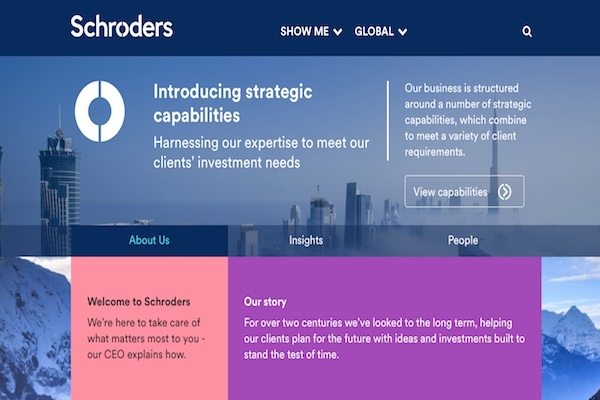The steady dismantling of the Woodford empire has continued with the Woodford Patient Capital Trust, one of the firm’s best known investment vehicles, being renamed the Schroder UK Public Private Trust and management transferred to Schroders.
Schroder Investment Management has been appointed as the company's portfolio manager, effective immediately.
The trust will be managed by Schroders' Private Equity investment team Schroder Adveq which has over £10bn of assets under management.
Susan Searle, chair, said: "I am extremely pleased to announce the appointment of Schroders as the company's portfolio manager.
“Following a smooth handover, the board is confident that the portfolio manager's expertise in both public and private assets, alongside its deep sector experience, will enable the portfolio to deliver sustainable value and positive long-term shareholder returns.”
Schroders said its investment strategy would focus on investment in public markets and private assets. The trust’s borrowing facility has been extended for at least 12 months to alow time for “de-gearing” the portfolio and to give portfolio managers more “flexibility” in managing the company's assets for the benefit of the shareholders.
Schroders will not take a management fee for three months. Thereafter Schroders will be paid a management of 1% per annum on market capitalisation up to £600m and 0.8% per annum thereafter.
There is no performance fee payable until 31 December 2022, at which point Schroders will be allowed to charge a fee of 15% of any excess returns above a NAV per share of 77p, subject to certain limits after that.
The transfer to Schroders for the Patient Capital Trust marks the latest stage in the gradual unwinding of the business founded by fallen star fund manager Neil Woodford. The Woodford Equity Income Fund, currently suspended, will be wound up in 2020. Woodford has resigned as portfolio manager of the Woodford Income Focus Fund and other funds are either suspended, being transferred or being wound up.
It's not certain how much investors will lose in the funds but experts expect many to have lost between 20% and 40% of their original investment. A recent stock market rally may have helped investors but with many illiquid investments involved it is likely to take some time to unravel positions and sell off assets.

